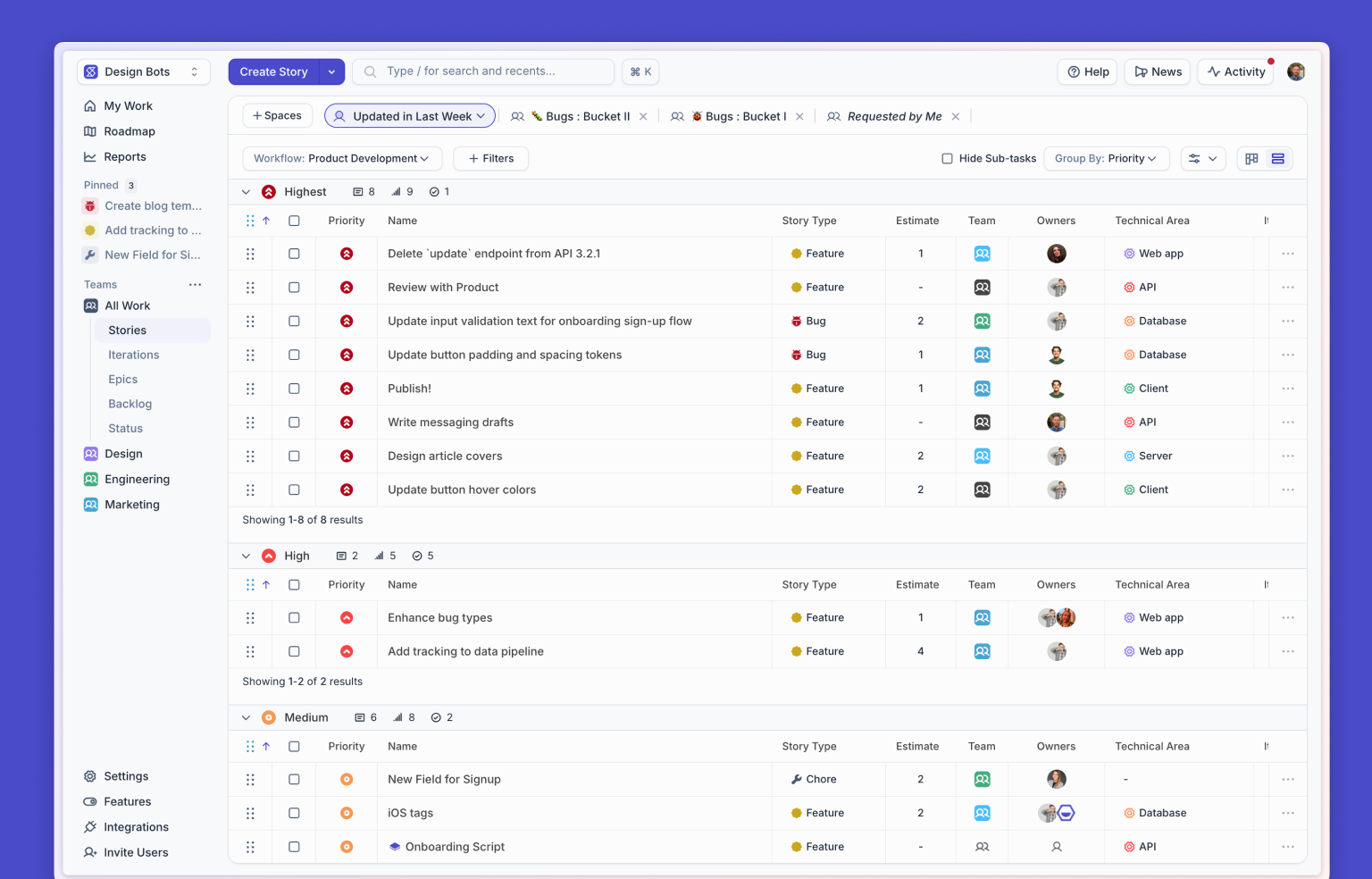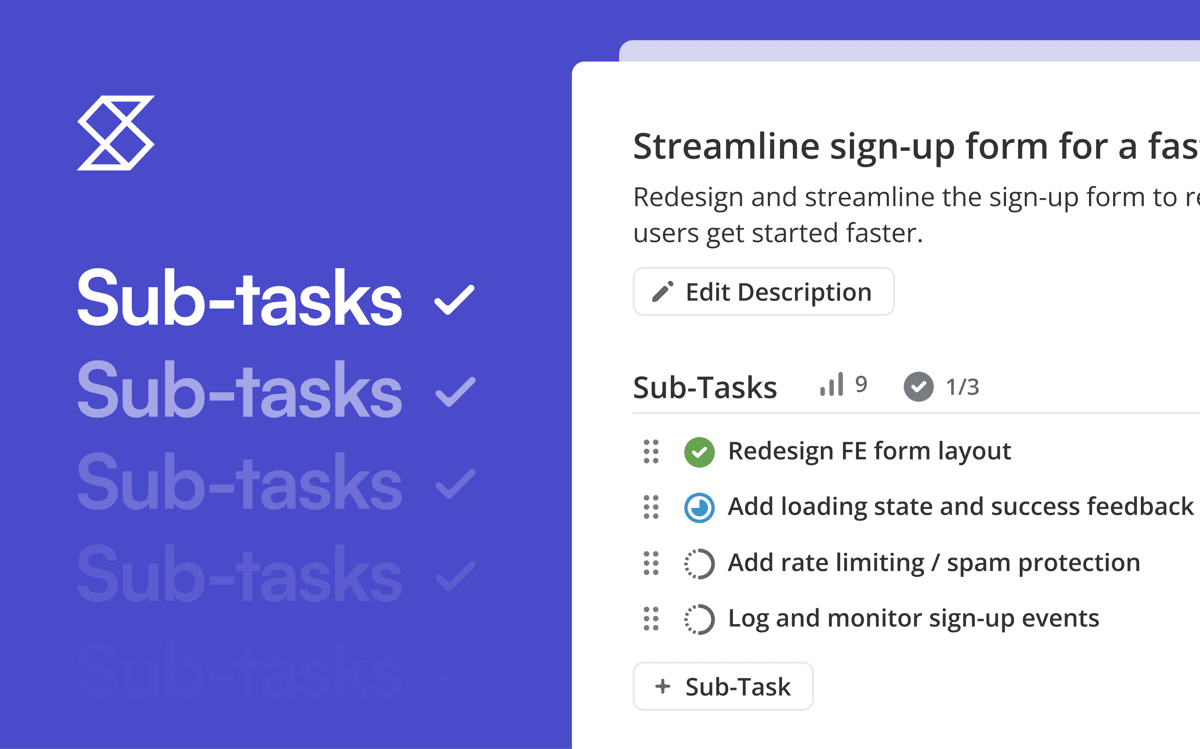Most "best tools" articles were written by people who've never missed payroll or pivoted three times in six months. This guide comes from actual startup experience.
TL;DR: Shortcut wins for software teams, ClickUp for everything else, and Trello when you just need to stop arguing about process and start shipping.
What Actually Matters for Startups
Forget enterprise feature checklists. Here's what really matters when you're trying to survive your first two years:
Can you onboard someone in 10 minutes? When your new developer starts Monday and needs to contribute by Wednesday, complex setup kills momentum.
Does it break when you pivot? Your project management tool should handle "we're pivoting from B2B to B2C" without requiring a week of reconfiguration.
Will it grow with you? The tool that works for 3 people needs to work for 30 without a complete migration.
Does it integrate with your actual workflow? If your team lives in Slack and GitHub, your PM tool better play nice with both.
The Tools That Actually Work
1. Shortcut - Built for Software Teams Who Ship
Why it wins for dev teams: Shortcut was built by engineers, for engineers. It connects directly to your code repos, updates automatically when you push commits, and doesn't force non-technical processes on technical teams.
Real startup benefits:
- Free for up to 10 users (perfect for early teams)
- Auto-updates from GitHub/GitLab mean less manual busywork
- Iterations help you stay focused on what matters this sprint
- Stories connect directly to code, not abstract "tasks"
When to choose it: You're building software and your team includes engineers and product managers. The tighter integration with development workflows makes this a no-brainer for product development teams.
Pricing reality: Free until you hit 10 people, then $8.50/user/month. But here's the kicker: startups with fewer than 50 employees get 12 months completely free through their startup program. For software teams, this pays for itself in reduced context-switching.
2. ClickUp - The Swiss Army Knife
Why it works for growing teams: ClickUp adapts to however your team actually works. Need Kanban boards? Got it. Gantt charts? Sure. Want to track time, manage docs, and chat in one place? ClickUp does all of it.
Real startup benefits:
- Generous free plan that actually lets you work
- Customizable enough to handle weird startup processes
- AI features that help with planning and automation
- One tool replaces several, saving money and mental overhead
When to choose it: Your team does more than just software development, or you want one tool that can handle multiple departments as you grow.
Pricing reality: Free plan is genuinely useful. Paid plans start at $5/user/month, which is reasonable for the feature set.
3. Trello - When Simple Wins
Why it still matters: Sometimes you just need to stop debating process and start moving cards to "Done." Trello's simplicity is a feature, not a bug.
Real startup benefits:
- Everyone understands it immediately
- Great free plan with real functionality
- Doesn't break when your process changes
- Perfect for non-technical team members
When to choose it: Your team is small, your process is simple, or you keep getting bogged down in PM tool complexity instead of actual work.
Pricing reality: Free plan works for most small teams. Paid plans start at $5/user/month.
4. Asana - The Organized Middle Ground
Why it works: Asana strikes a balance between Trello's simplicity and more complex tools. It grows with you without overwhelming new users.
Real startup benefits:
- Free for teams up to 10 people
- Good project templates to get started quickly
- Timeline view helps with planning releases
- Solid mobile app for remote work
When to choose it: You need more structure than Trello but don't want ClickUp's complexity, or you have mixed technical/non-technical teams.
Pricing reality: Free plan covers most startup needs. Premium starts at $10.99/user/month.
What Changes as You Grow
3-5 people: Simple tools win. Trello or basic Asana keeps everyone aligned without overhead.
5-15 people: You need more structure. Shortcut for dev teams, ClickUp for mixed teams, Asana for traditional project work.
15-50 people: Integration becomes critical. Whatever tool you choose needs to connect with Slack, GitHub, and your customer support system.
50+ people: You're not a startup anymore. Time to evaluate enterprise features, but that's a different article.
Red Flags That Signal a Tool Isn't Startup-Ready
- Requires a "setup consultant" - You shouldn't need professional services to manage tasks
- No free plan or terrible free plan - Tools confident in their value offer real free tiers
- Complex permission systems - Early startups need transparency, not bureaucracy
- Vendor lock-in - You need to be able to export your data when you outgrow the tool
The Integration Reality Check
Your PM tool lives in an ecosystem. Here's what actually matters:
GitHub/GitLab integration: Automatic updates when code ships. Shortcut excels here.
Slack integration: Notifications that don't spam but keep people informed. Most tools do this adequately.
Time tracking: Built-in is nice, but integrating with Harvest or Toggl works too.
Customer feedback tools: Connecting support tickets to development work. This varies by tool but is often overlooked.
Budget Breakdown for Growing Teams
Year 1 (3-10 people): $0-500/month total
- Free tiers handle most needs
- Shortcut's 12-month startup program means zero PM costs for dev teams
- Focus spending on tools that save time, not add features
Year 2 (10-30 people): $500-1500/month total
- Paid PM tools become worthwhile
- Integration costs start mattering
Year 3+ (30+ people): $1500+/month total
- Advanced features justify higher costs
- Multiple tool coordination becomes important
Making the Choice
For software development teams: Start with Shortcut's free plan, then apply for their startup program to get 12 months free. The development workflow integration alone makes it worth it.
For mixed or non-technical teams: Try ClickUp's free plan first. If it feels overwhelming, step back to Asana.
For teams that just need to start somewhere: Trello. You can always migrate later, and getting started matters more than having perfect features.
For teams with complex client work: Consider Teamwork or monday.com, which handle client collaboration better.
The Bottom Line
The best project management tool for your startup is the one your team actually uses. Features matter less than adoption, and adoption depends on fitting your actual workflow, not some idealized process.
Start simple, grow intentionally, and remember: the tool should serve your team, not the other way around. Most failed PM implementations happen because teams choose based on feature lists instead of daily reality.
Your startup has bigger problems to solve than project management software. Pick something that works, use it consistently, and focus on building your product.














.png)


%20(788%20x%20492%20px)%20(1).png)
.png)

